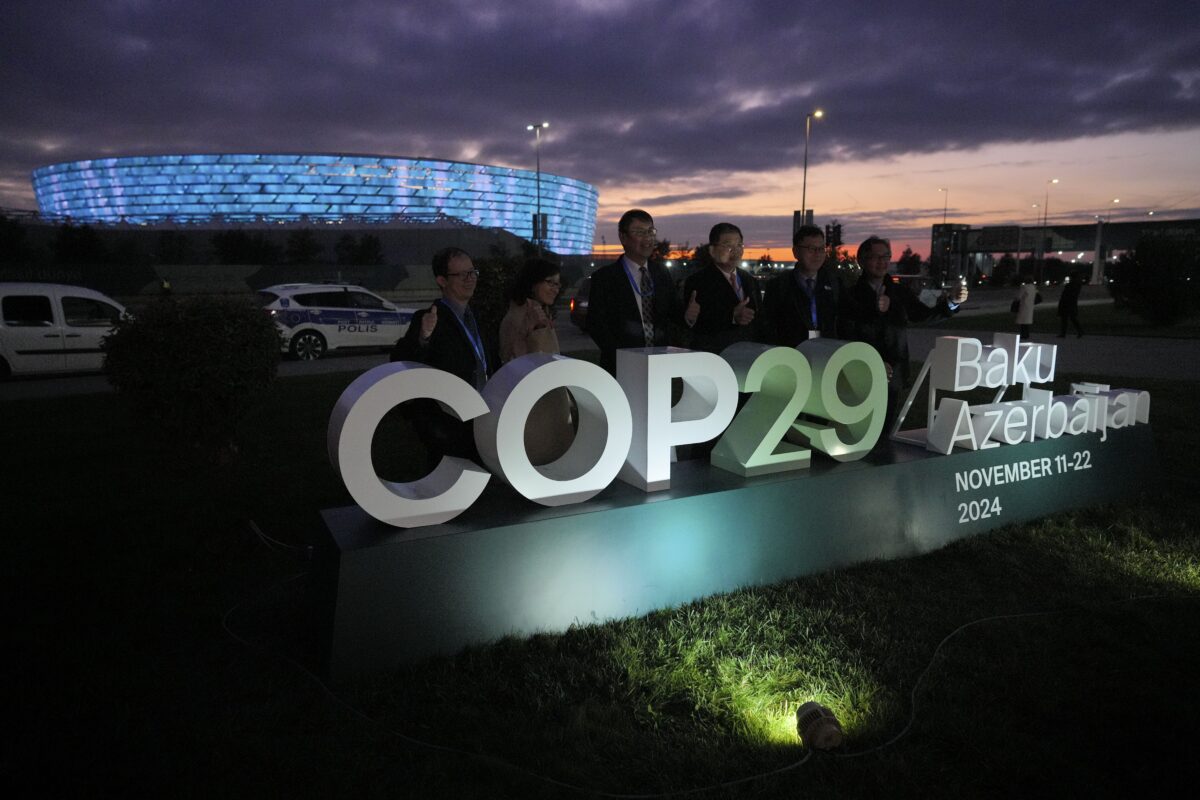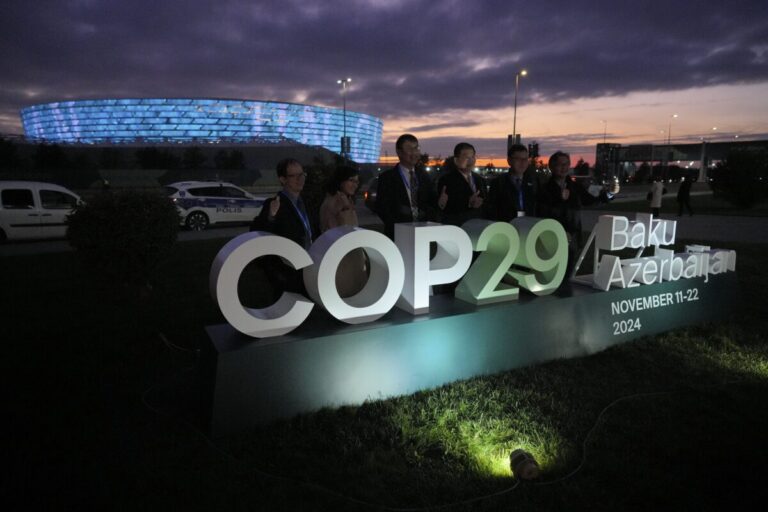
People pose for a photo with the Baku Olympic Stadium in the background at the COP29 U.N. Climate Summit, Thursday, Nov. 14, 2024, in Baku, Azerbaijan. (AP Photo/Peter Dejong)
BAKU, Azerbaijan — Deep divisions persist as negotiations enter the final week at the United Nations Climate Conference (COP29) here, where world leaders and negotiators from 196 nations are attempting to set a new climate finance target to help poorer countries shift to clean energy and adapt to climate change.
A new report from a UN-backed expert group on climate finance floated the idea that global climate action would require at least $1.3 trillion a year by 2035 to help developing countries like the Philippines manage climate impacts.
The New Collective Quantified Goal on climate finance will replace the $100 billion per year commitment to developing countries by 2025.
READ: Midway into COP29, climate action woefully insufficient
‘Not charity’
Rich countries, including the United States and members of the European Union, acknowledge that trillions of dollars are needed but argue about who should contribute to it, which nations should receive the money, and how the funds are to be allocated.
Article continues after this advertisement
“Climate finance is not charity. It is 100 percent in every nation’s interest to protect their economies and people from rampant climate impacts. So countries must wrap up less contentious issues early in the week, so there is enough time for the major political decision,” said UN Climate Change Executive Secretary Simon Stiell at a press conference on Tuesday.
Article continues after this advertisement
Environment Secretary Maria Antonia Yulo-Loyzaga said the Philippine delegation to COP29, which she heads, would strive to advance the country’s interest in discussions on climate finance, mitigation, adaptation, and loss and damage, among other key issues.
“I am always hopeful [of] the process, but we have to be realistic and understanding in terms of the amount that is really needed, where it has gotten us in the number of years, and we’ve been talking beyond the quantum of climate finance,” Yulo-Loyzaga told the Inquirer.
Countries are also being urged to scale up adaptation efforts to avert rising climate impacts, which are hampered by a huge financial gap estimated by the United Nations Environment Programme (Unep) at $187 billion to $359 billion per year.
“We need to unlock a new climate finance goal at COP29 as climate is already devastating communities across the world, particularly the most poor and vulnerable,” said Inger Andersen, executive director of Unep.
Negotiators will hammer out a “COP29 package” to ensure a high-ambition and balanced package across climate mitigation, finance and adaptation, as well as key elements…



